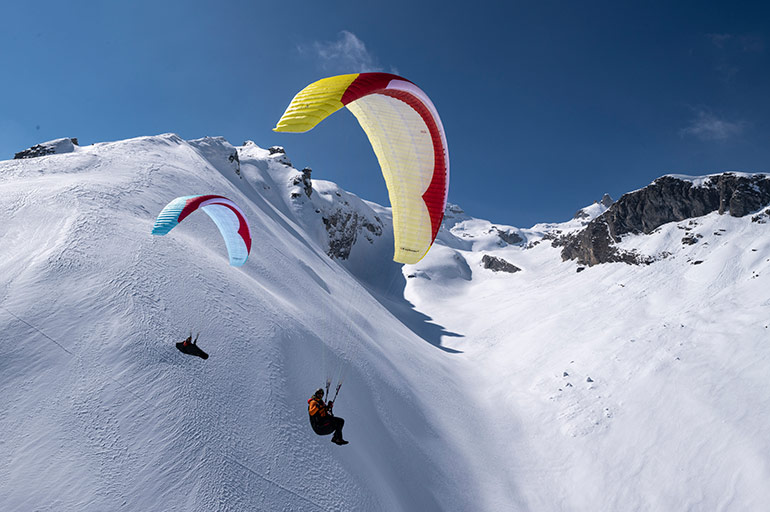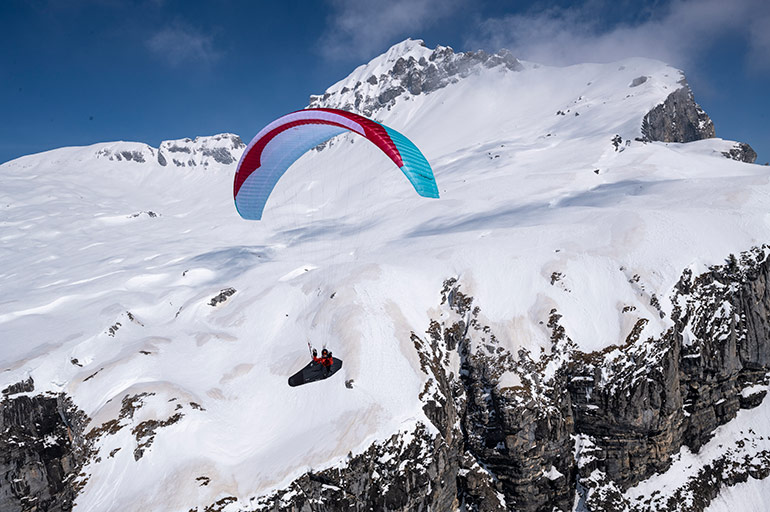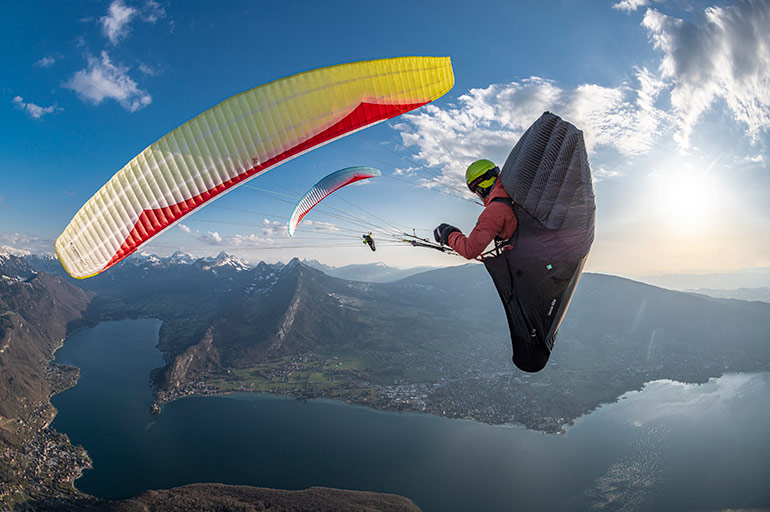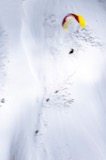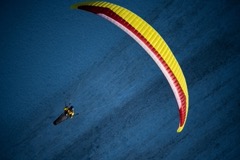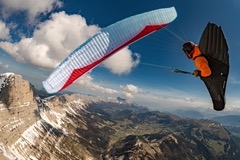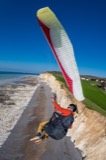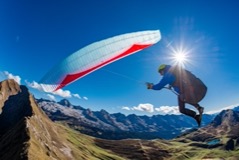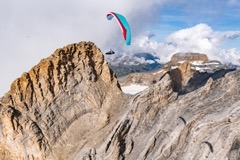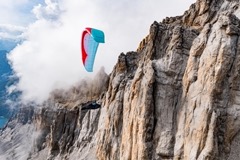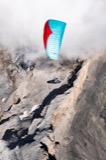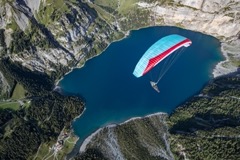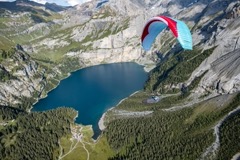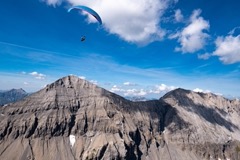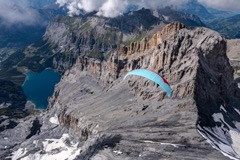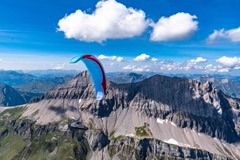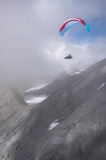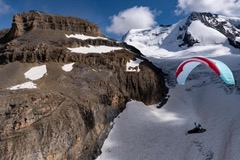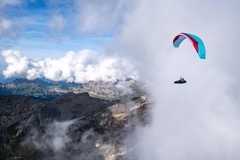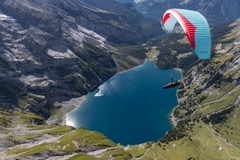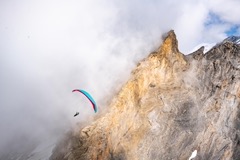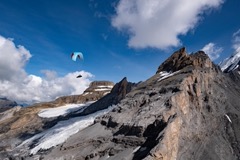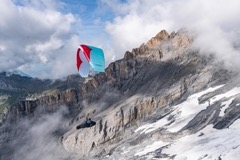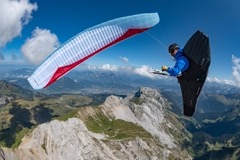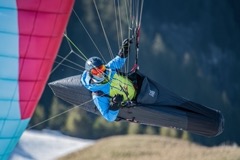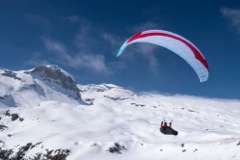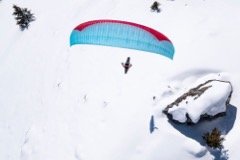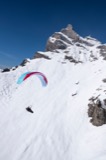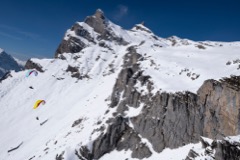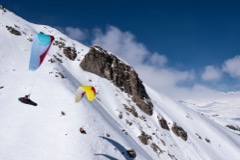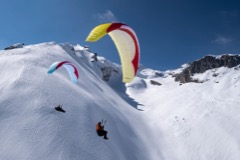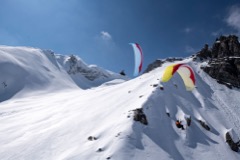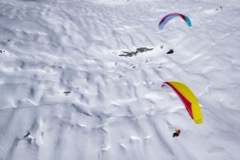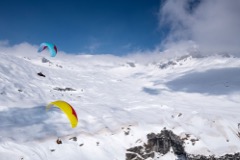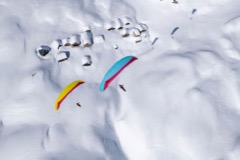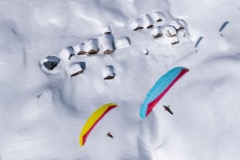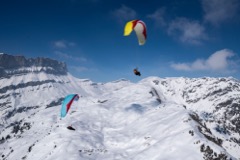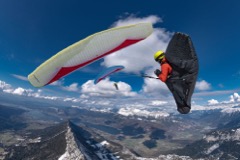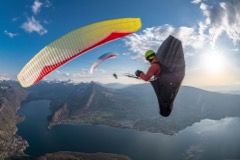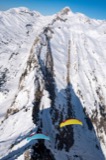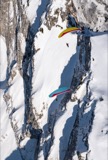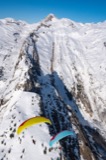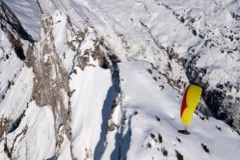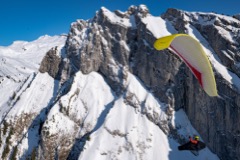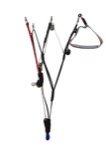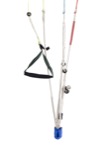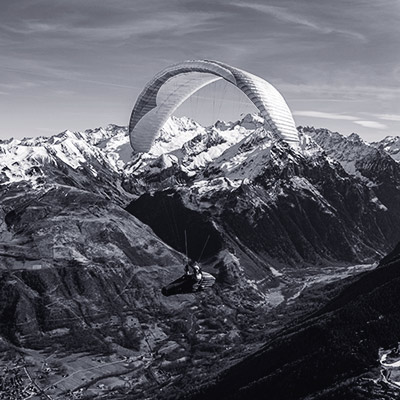Explorer 2
- Light performance
- EN B
A touch of magic
The ingredients are classically simple, even unremarkable: 59 cells, A.R. 6, 3 main lines, well proven profile. Yet the finished dish is unexpectedly exquisite.
The Explorer 2 simply allows the pilot to reconnect with the pure joy of flight. No more struggling with the wing. No more niggling doubts. Just the direct experience, like a scene snapping into focus. The Explorer 2 offers concrete improvements over its predecessor whilst retaining the best loved aspects:
- improved climbing ability in all conditions
- improved glide performance
- exemplary pitch stability for even better take-off characteristics and collapse resistance
- smart riser for improved C riser control
- increased maximum speed (2cm longer travel)
- greater compressibility thanks to nitinol reinforcements
Technical Specifications
| Size | XXS | XS | S | M | L |
|---|---|---|---|---|---|
| Flat area (m2) | 20.54 | 22.10 | 23.99 | 25.96 | 28.07 |
| Flat span (m) | 11.17 | 11.58 | 12.07 | 12.55 | 13.05 |
| Flat aspect ratio | 6.07 | 6.07 | 6.07 | 6.07 | 6.07 |
| Projected area (m2) | 17.48 | 18.81 | 20.43 | 22.10 | 23.89 |
| Projected span (m) | 8.92 | 9.26 | 9.65 | 10.03 | 10.43 |
| Projected aspect ratio | 4.56 | 4.56 | 4.56 | 4.56 | 4.56 |
| Chord (m) | 2.25 | 2.34 | 2.43 | 2.53 | 2.63 |
| Number of cells | 59 | 59 | 59 | 59 | 59 |
| Glider weight (kg) | 3.2* | 3.4* | 3.7* | 3.9* | 4.1* |
| Weight range (kg) | 55-75 | 65-85 | 75-95 | 85-105 | 95-120 |
| Certification | EN B | EN B | EN B | EN B | EN B |
* Weight with light Dyneema risers. Regular risers: add 200g
To the top!
Perhaps the most notable characteristic of the Explorer 2 is the way the refined yet compact handling translates into a superior climbing experience. The wing bites enthusiastically into thermals, yet settles quickly overhead. Brake pressures are light yet progressive, giving you just enough information to effortlessly maximise your climb.
(Still) in a class of its own
Thanks to the slight increase in surface area and other gains in aerodynamic efficiency, the Explorer 2’s glide performance surpasses that of its predecessor.
An unflappable character
The Explorer 2 has an innate pitch stability. Even on windier take-offs, the wing comes up progressively and waits obediently above your head. When conditions get rowdy, it’s more well behaved than ever.
Improved speed system
The Explorer 2 features a new smart riser with a control toggle and a Harken pulley for extra smooth operation. Push half bar, take the riser and enjoy the view! The Explorer 2 also has an extra 2cm of speed bar travel for increased max speed.
A small footprint
Nitinol (Nickel titanium) rods make for a more compact packing, help maintain a clean top surface, and keep the weight down.
Designer notes
Designer and CEO Gin Seok Song explains the development of the Explorer 2:
“Squeezing something extra from the original Explorer was not an easy task! Rather than try to increase performance by increasing the aspect ratio, we decided to go the other way and play with the surface area. Smaller and smaller wings might be today’s trend, but all things equal, larger wings offer several advantages. With the increased Reynolds number, they not only perform better but are also more stable.
The key was to increase the surface area without compromising responsiveness and speed. To do this, we drew heavily on the wind tunnel research we are carrying out in partnership with a university here in Korea. This is a major project that has already produced some insights that are trickling down into production wings. This work helped a lot to optimise the sail tensioning, which for the pilot means improved climbing and more refined handling.
In addition, we have a new smart riser with C control system. There’s a toggle for easy control and an additional pulley for extra smooth operation. With an extra 2cm of accelerator travel, we were also able to increase maximum speed. It’s a real pleasure to fly on the bar. For the reinforcements, we are also using a combination of a new type of plastic rod and Nitinol wire. The Atlas rods are used in critical nose sections due to their high resistance to breaking, dimensional stability and minimal wear and tear effect. The Nitinol wire on the top surface towards the rear perfectly and precisely supports the trailing edge whilst reducing weight and packing volume.
All in all, the original Explorer was a firm favourite with a wide range of pilots. We are confident that the Explorer 2 has even more to offer an even wider range of pilots.”
Details
- Strategic mix of new formula plastic rods and Nitinol (Nickel titanium) wire for dimensional stability, performance and more compact packing
- 3 risers / 3 lines spanwise
- Unsheathed aramid lines with optimized diameters
- Speed system with C riser steering
- Gathering (reefing) system and mini ribs on the trailing edge
Materials
Canopy cloth
Upper surface leading edge: Porcher Skytex 32 g/m²
Upper surface: Porcher Skytex 27 g/m²
Lower surface: Porcher Skytex 27 g/m²
Lines
Upper: Edelrid 8000-U 050, 070, 090, 130
Middle: Edelrid 8000-U 070, 090, 130, 190
Main: Edelrid 8000-U 230, 280, 360
Colours


Included with your glider
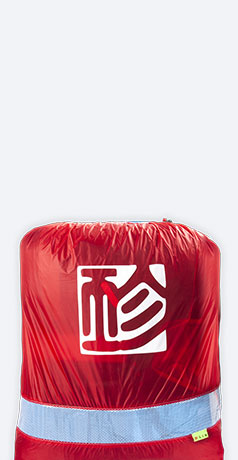
Inner bag

Compression strap

GIN stickers

